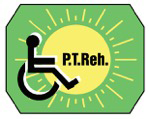


|
Current issue
Archive
Manuscripts accepted
About the journal
Editorial board
Reviewers
Abstracting and indexing
Contact
Instructions for authors
Publication charge
Ethical standards and procedures
Editorial System
Submit your Manuscript
|
1/2016
vol. 30 abstract:
The role of physiotherapy in terminal care
Sławomir Przewłocki
,
Aleksander Ronikier
Postępy Rehabilitacji (1), 41-50, 2016
Online publish date: 2020/01/23
View
full text
Get citation
ENW EndNote
BIB JabRef, Mendeley
RIS Papers, Reference Manager, RefWorks, Zotero
AMA
APA
Chicago
Harvard
MLA
Vancouver
Introduction
Terminal patients require proper care standards and professional team of doctors, physiotherapists, social workers, educators, psychologists and clergy directly involved in mitigating the suffering of a dying person. A physiotherapist as a member of such a team should be focused on sustaining the patient’s quality of life until the end at the level relevant to the patient’s health state. This quality of life should be perceived integrally as a combination of procedures reducing pain and physical suffering as well as improving physical fitness and mental well-being. Material and methods The aim of the research was to define the role of physiotherapy in assessing mental and physical state of terminal patients; to determine the applicability of ADLs, GDS and BDI in diagnosing the validity and usefulness of tiresome physiotherapeutic procedures for terminal patients and to assess the applied tests in predicting terminal patients’ survival time. The research was carried out on the turn of 2012 and 2013 in the group of 103 subjects (74 females - 71.8% and 29 males – 28.2%) For the research the following methods were used: - Activity of Daily Living scale (ADL)- - Beck Depression Inventory (BDI) - Geriatric Depression Scale (GDS) - Questionnaire regarding their willingness to participate in physiotherapeutic procedures. Results In the research the range of diagnostic possibilities of the applied scales and tests, correlations between theses scales and tests as well as correlations between them and subjects’ age and survival time were assessed. Additionally, a questionnaire survey was carried out which assessed the willingness to participate in physiotherapeutic procedures. Strong stress, terminal state of the patient and generalisation of symptoms brought about the fact that only 14.6% of patients declared their willingness to participate in physiotherapeutic procedures. Conclusions 1.Implementing physiotherapeutic and psychological diagnostic tests in everyday terminal care makes it easier to assess survival time of terminal patients and significantly improves their life and dying with dignity 2. Proper understanding of the symptoms of dying must serve as a basis for organising adequate activities compliant with the progress of a disease of a terminal patient without disturbing the process of dying. 3. Modern physiotherapy in terminal care should limit the range of physiotherapeutic procedures and physical therapy while increasing psychological care in this population. |
    |